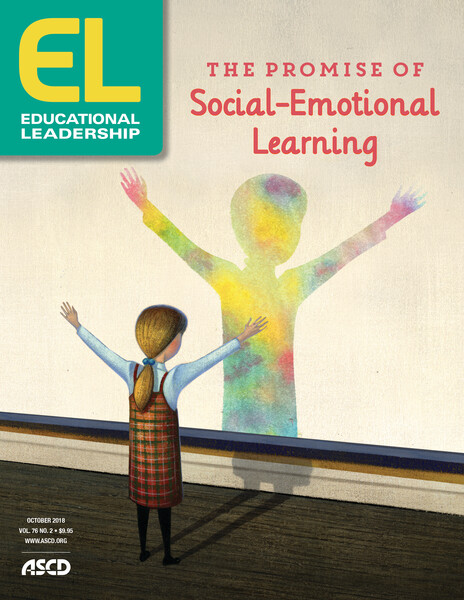We are social and emotional beings, but our education systems often seem to forget this. I have often thought that schools could be much more powerfully organized if they gave more attention to providing students purposeful opportunities to have social interactions and build social skills, particularly as students get older. Early childhood education as a field tends to advocate and design for social-skills development, and early childhood educators deliberately create opportunities for young children to live and learn through social interaction, with centers time inside the classroom and organized, structured, and "free" play with peers both inside and out. These experiences allow children to negotiate conflicts, use their imagination, and build other skills such as critical thinking, creativity, and problem solving. They are essential to, and well-aligned with, the psychological, affective, and emotional development that help students grow cognitively and behaviorally.
However, as students get older, the focus on meaningful social interactions—especially structured ones—tends to decrease drastically in school. I have noticed this with my own children as they get older. In the upper elementary grades, the expectations for students suddenly appear to be more "school-like": They will receive grades for the first time and will be expected to participate in education in a way that demonstrates academic "independence." One problem with this shift from a more collaborative, teamwork-like environment to one based on independence is that it accelerates competition (both implicitly and explicitly) among students. At this stage, students are also entering into the world of standardized testing—an all-consuming system focused solely on helping them develop academically.
In many urban and high-poverty schools, structured, enriching opportunities around social-emotional skills-building are especially scant. In these types of schools, the curriculum is increasingly narrow, and teachers are often forced to teach from a preconstructed script. There is an intensified focus on subject matter areas that are tested, generally mathematics and English language arts. In some schools, physical education and the arts have been streamlined to the point where instructional time for them is almost nonexistent.
The Academic Connection
In other words, the content areas where students have the best opportunities to interact, collaborate, develop collective identity and culture, and build social-emotional skills—art, band, physical education, creative writing, and theatre, for instance—are too often stripped away from our most vulnerable students. It's not hard to see this as a structural form of oppression and discrimination. In a systemic effort to prioritize certain narrowly defined academic results, some students are missing out on opportunities to build social-emotional skills that are key to their affective and emotional stability and development. Larry Davis, former dean of the School of Social Work at the University of Pittsburgh, told me that he had found in his years of research that academic problems tend to reflect social problems. Although in our conversation Davis was referring to much broader, macro-level social issues such as poverty, redlining, and geography of opportunity, I have found that micro-level social issues—including negative interactions with teachers, corrosive school climates, and lack of enrichment activities—also have a very real bearing on students' chances of academic success. Thus, the idea that students' social development should be compromised in the name of academic progress is problematic to say the least. When students' social-development needs are met, they tend to be happier and more emotionally and affectively stable, available, and skillful—and thus better equipped to excel academically. The social and the academic should be conceptualized, planned, and enacted in tandem.
High-quality, well-planned, and well-funded opportunities to build social-emotional skills (such as through arts education programs) must be protected and seen as a basic human right for students—all of them. Our students can't develop fully, or even academically, without such opportunities.





